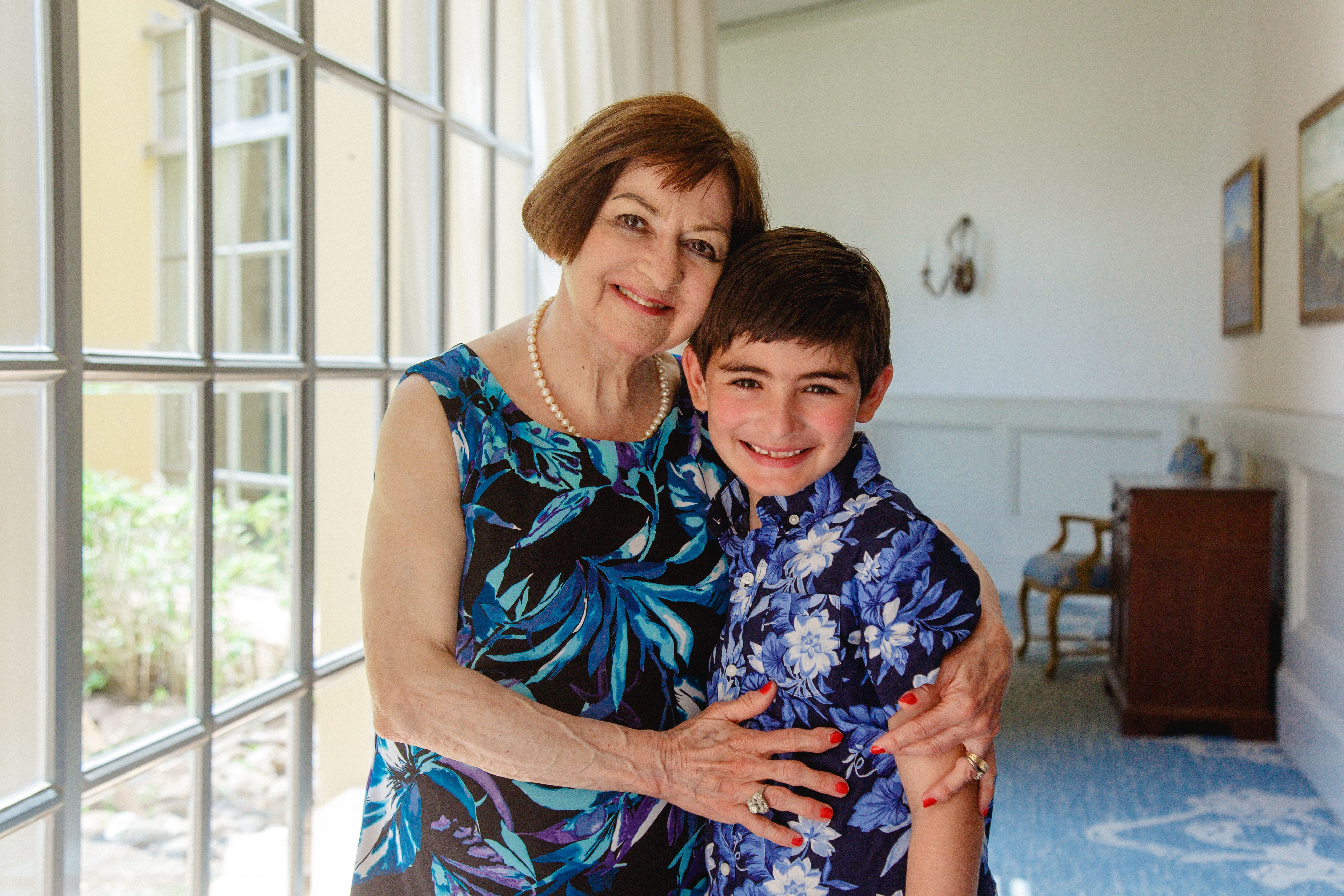You Can Be A Hero: William Aryana

Karen Merritt, Co-founder of GCCA member organization, Advocates for Universal DPD/DPYD Testing, introduced GCCA to William Aryana, an inspiring young advocate who has written a book about his grandma, their relationship, and the experience of her colorectal cancer diagnosis and treatment. William is 12 years old, and he is on a mission to encourage adults to get screened for colorectal cancer. By sharing his message with other kids, and the parents who read to them, William is spreading awareness about this disease that could save someone's life. We are proud to present GCCA's interview with William.
What inspired you to write You Can Be a Hero and Save Someone’s Life specifically for children?
After my grandmother passed away and I learned that her colon cancer could have been prevented if she had received a colonoscopy, I was devastated. She was a huge part of my life and the only close relative I had in the US except for my parents. I only learned about colon cancer prevention after my grandmother was diagnosed with this dreadful disease. If I had known about it before her diagnosis, I would have pushed my grandmother to get a colonoscopy. After my grandmother’s passing I urged my dad to have a colonoscopy and they found many polyps in his colon. I want other children to be informed, so they can urge their parents and loved ones to get screened and not go through the same experience my family went through.
How do you hope the book will start conversations within families about colon cancer prevention?
I hope children will be encouraged to talk to their relatives about colon cancer prevention at the dinner table, or when they meet their grandparents, aunts and uncles. They can even spread awareness around other children in their families. If your child or grandchild reminds you to get screened, maybe people are more likely to do it than if they are asked by their doctor alone. But maybe adults will also start thinking about colon cancer screening while reading the book to their children. Lastly, I want children to be aware of colon cancer prevention so they also do not forget to get screened once they are a grown-up.
What role do you see children and young adults playing in encouraging their parents or loved ones to get screened?
I hope that parents will have cancer screening because they love their children and they want to make sure that they live and be around to take care of them. Colon cancer is on the rise in young people who are in their thirties and forties. People who are 45 years old or older and have no family history of colon cancer should start getting screened for it. Adults with a family history of colon cancer or other risk factors should start screening even earlier.
You’ve already turned a personal tragedy into an educational tool. What do you hope to accomplish next with your advocacy?
I hope to raise awareness through a different pathway. Usually adults advocate for colon cancer awareness and this advocacy is directed at people who are above 50 years old. I hope to be able to reach young parents and children who would otherwise not hear of colon cancer screening. These parents are often busy raising small children and colon cancer is not something they think about in their everyday lives.
GCCA was introduced to you and your book by GCCA member organization, Advocates for Universal DPD/DPYD Testing. How did you and your family connect with that organization?
We actually found an interview online in Forbes magazine that Karen Merritt gave on behalf of Advocates for Universal DPD/DPYD Testing. We connected with Karen and shared the sad stories of our family members who suffered the same fate. I decided to try to help to prevent other patients from losing their precious lives in the same way that my grandmother and so many loved ones of the members of Advocates for Universal DPD/DPYD Testing did.
You mentioned your grandmother passed away not from colon cancer itself, but due to side effects from 5-FU chemotherapy linked to DPD deficiency. Can you explain why testing for DPD deficiency is so important, and how awareness can save lives?
About one in every twenty colon cancer patients has a condition called DPD deficiency. These patients lack an enzyme that breaks down 5-FU. These patients then actually get a dose of the medication that is many times higher than the dosage they are supposed to receive. This toxic level of the medication causes the patients to have severe side effects or die from the chemotherapy that is prescribed to help and save them. Testing can identify many of these patients and they can start treatment with a lower dose and be monitored or they can just be treated with a different medication.
What do you wish more oncologists and patients knew about DPD deficiency before starting treatment?
I wish that oncologists were aware that this condition is not as rare as they might think and patients knew that testing for DPD deficiency is available, affordable, and covered by many health insurance plans.
How do you think patient advocacy groups like GCCA can help push for wider adoption of testing for DPD deficiency?
I think we all need to keep pushing and raising awareness online, at public events such as rallies and conferences as well as in our local communities. Every life we can save makes all of our efforts very very worthwhile.

Support a young advocate and author, and purchase William's book You Can Be a Hero and Save Someone's Life.
Learn more about DPYD and DPD deficiency in this GCCA Blog post.
